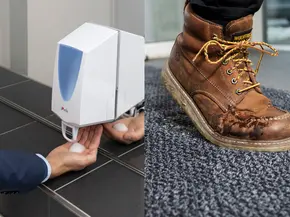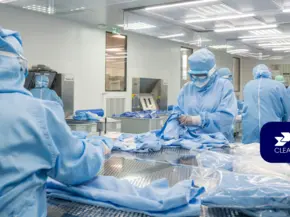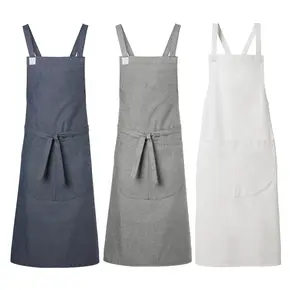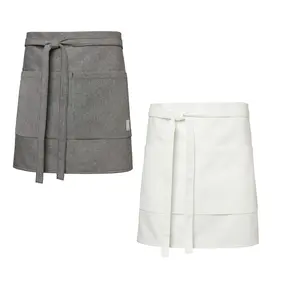Stylish aprons with sustainability woven in
Each apron within the collection is made from:
-
60%
of our own recycled textiles
-
40%
of recycled plastic from post-consumer plastic bottles
The bigger picture: we’ve measured the sustainable impact of our aprons and are proud to report that choosing our Workwear to Workwear collection provides a 50% reduction in carbon emissions compared to a standard apron made from virgin polyester.
We are proud that our innovative new apron range enables our partners to help substantially cut carbon emissions when procuring aprons, helping us work together towards a zero-carbon future.
Choosing our workwear to workwear apron instead of a standard apron made from virgin polyester means:
-
90%
savings in water
-
60%
reduction in carbon footprint
Serving up optimal sustainability and style
Allow us to serve you fresh, eco-designed uniforms, it’s our speciality....
As a hospitality professional, you will understand the importance of using high-quality, sustainably sourced ingredients. Sourcing a supplier to fully manage your restaurant and kitchen uniform requirements is no different…
That’s why, at Elis, we offer eco-designed products which have been carefully made to minimised environmental impact in the production process and within the garment’s lifecycle.
Our garments are laundered, repaired and maintained within our fully managed circular services. This helps to optimise functionality and longevity, reducing carbon emissions, energy consumption and associated costs.
Our textile recycling process
-
Resolution
When our garments can no longer be repaired or withstand our wash processes, they are put aside for sorting so that they can be recycled and transformed.
-
Removal
After sorting, the end-of-life garments enter the shedding process, whereby all fixtures from the garments are removed ready for defibration (the breaking down of fibres within the garment).
-
Raw fibres recovered
Through a mechanical process, the raw fibres are broken-down and retrieved from the garments.
-
Revitalise
The fibres obtained from end-of-life garments are then spun to create new yarn.
-
Ready to weave
The yarns are woven into new fabric. This undergoes a finishing process to enhance its properties, creating a ready-to-use fabric made from our end-of-life garments: a 100% recycled material!
-
Reborn and ready to wear
The fabric is cut in the garment factory, ready to create a new apron. Garments will be worn until end-of-life, when they reach resolution.
Sustainable style with our innovative aprons
The significance of front-of-house uniforms
First impressions count. As the first point of contact, front-of-house staff play a vital role in your business, welcoming customers and helping to make their experience of your establishment a memorable one.
Employee uniforms can help to create a professional look and feel, reinforcing the visual identify of your brand and ensuring it is memorable for all the right reasons.
Zero waste aprons from Elis provide the perfect solution, offering a smart and stylish aesthetic while supporting your commitment to sustainability best practice.
- Choose an apron that results in a carbon emission saving of over 50% compared to a standard apron made from virgin polyester
- Choose to have garments professionally laundered for optimal hygiene and quality, ensuring employees have functional and fresh uniforms that they can take pride in
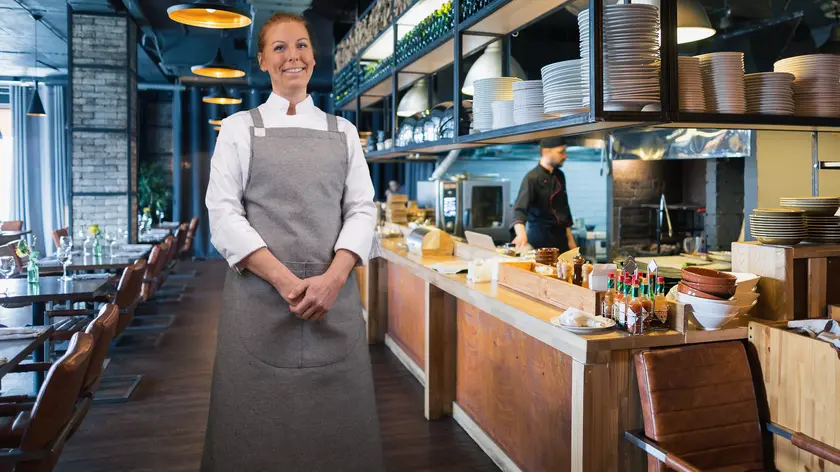
-
Optimal sustainable innovation
Each apron within the collection is composed of 60% of our own recycled textile and 40% recycled plastic from post-consumer plastic bottles, creating durable and high-performance textiles that are made to last.
-
Prime eco-design
Zero fabric is lost or wasted during manufacturing due to our innovative construction and cutting processes.
Workwear to Workwear Collection
Subscribe to our newsletter

Want to know more? Contact us.
*Required fields
Contact details
Your legal name is the name that appears on your official documents.

